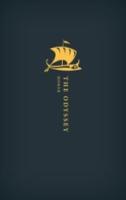
OUP (2018) p/b 354pp £7.99 (ISBN 9780198736479)
Like most people of my generation, I first met Homer’s Odyssey in the Penguin Classic translation by E.V. Rieu. I was struck by the story line and the pace of the narrative, like a B movie of the 1950s. Reading it in Greek later on brought out the sonority of the language and the flexibility of the metrication. It is this combination of pace and poeticism which is so difficult to capture in translation. (Arguably the best rendition of Homer—or at least the Iliad—into English is Paradise Lost.)
At least 27 separate translations into English of the Odyssey alone have been published since the original Penguin Rieu (mainly from America), ranging in style from the Loeb-type crib to the much looser and more atmospheric. Amazon lists a plethora of mini-reviews of translations of the Odyssey alone over recent years (even discounting those banging on about the speed of delivery or the size of the font)—and most of them are enthusiastic.
This translation forms part of the Oxford ‘World’s Classics’ series. Verity is a distinguished classicist and schoolmaster and his previous translations for the series include the Iliad, Pindar and Theocritus. The introduction and the notes are by William Allan, a tutor in classics at University College, Oxford. The translation does not aim to be ‘poetic’ and keeps pretty strictly to the line numberings of the standard editions of the Greek text which are indicated on the margin of each page.
The introduction is concise, comprehensive and useful, particularly on the concept of retribution. The notes include a brief summary of the events in each book and otherwise seek only to elucidate names and obscure references. The translation is muscular, moves the story on briskly and is deliberately faithful to the original. V. is not shy of repeating the formular phrases without variation. In Book 18, for example, he begins a section with ‘So he/she spoke’ on twenty separate occasions; in Book 3 Telemachus is ‘thoughtful’ five times and ‘godlike’ twice. Keeping so closely aligned to the line structure of the original may occasionally have imposed a slight tyranny, but nothing like the tyranny of, for example, Pope’s heroic couplets.
Given the wide variety of styles and preferences this version is unlikely to be hailed as the definitive translation, but it is undoubtedly a leader in its genre—to my mind trumping Rieu, if only because it reads aloud more convincingly. It is a distinguished addition to the Oxford ‘World’s Classics’ series and, at under £8, a real bargain to boot.
Roger Barnes
